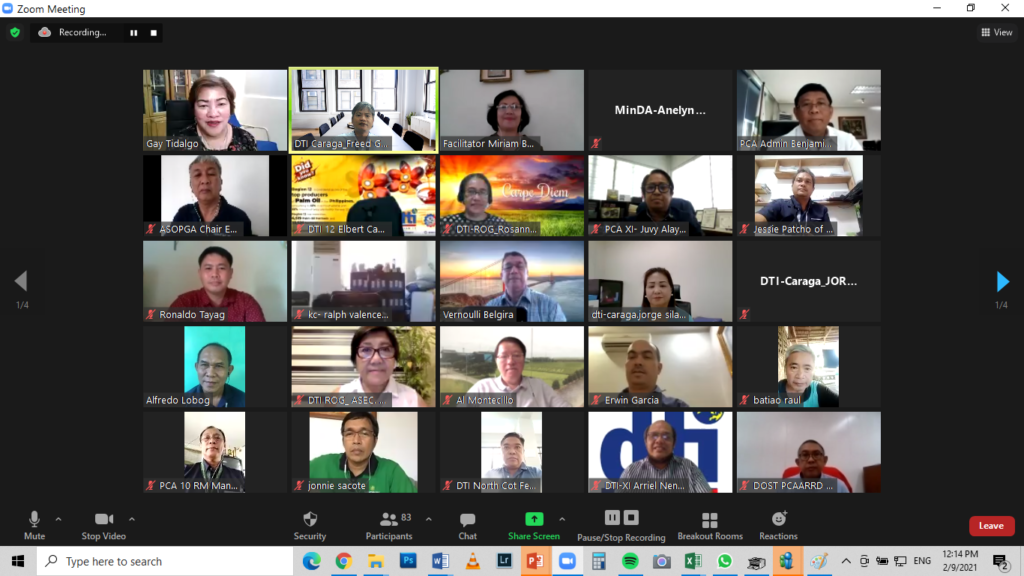Looking into the successes gained and challenges faced by the Philippine palm oil industry, the Department of Trade and Industry (DTI) led a revisiting of the 2014-2023 Philippine Oil Palm Roadmap last 9 February 2021 convening industry key players, stakeholders, and partner agencies.
“The review is a product of our commitment and desire to improve the performance of the industry. We collaborate to improve on our initiatives to enhance the palm oil industry and develop human and economic potentials,” DTI Regional Operations Group (ROG) Undersecretary Blesila Lantayona said.
Usec. Lantayona stressed that the Department needs to review, reflect and rethink, to make sure that the palm oil industry goals and targets are fulfilled.
“It has already been a long travel from the crafting of our roadmap until today, and we see evident developments as shown by continuously increasing investments generated, exports recorded, jobs generated, MSMEs created, and beneficiaries trained, among others,” the ROG Undersecretary added.
For 2020, the Palm Oil National Industry Cluster has generated P804M investments, 1,364 jobs, P513M domestic sales, and USD 4.1M worth of exports.
Meanwhile, Assistant Secretary Asteria Caberte said that the industry has been constantly facing challenges that the Department is already slowly addressing through the Palm Oil Development Council.
“The issues, such as the need to increase its productivity and uplift the living conditions of the palm oil farmers, must be seen as opportunities to do better in getting our goals and targets done,” Asec. Caberte said.
One of the issues discussed during the activity is the plan to strengthen the interagency efforts to address problems on smuggling and the negative publicity of palm oil plantations.
To recall, more than one million hectares of potential pam oil areas have been identified in the country for development while we need to develop and expand plantation area to 400,000 hectares to be self-sufficient in addressing food security. “We are yet to cover that by capitalizing on the strengths of this industry such as the availability of production technologies and technical expertise on the government and private sector, availability of low-cost labor for oil palm farm activities, and the presence of research centers and academic institutions that are conducting researches on oil palm,” Usec. Lantayona said. ♦
Date of Release: 8 March 2021

Philippine palm oil industry key players virtually convene to tackle the issues surrounding the industry and celebrate the successes of its development council.



